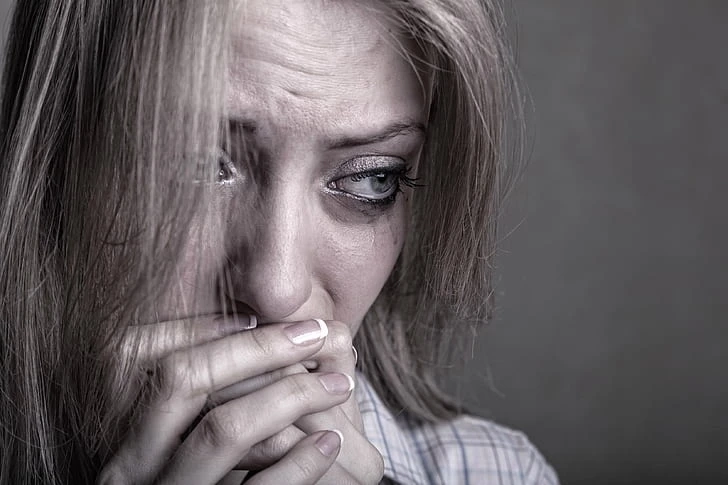COVID-19 affects nearly every aspect of our lives. As uncertainty, fear, and isolation have become a daily part of our lives, it's no surprise that anxiety levels are higher during this time. This article explores the various ways in which the pandemic has triggered anxiety and provides practical strategies for coping with anxiety during these difficult times.
Part 1: Pandemic Anxiety
1.1 Understanding Pandemic Anxiety
This pandemic has caused a type of anxiety called "pandemic anxiety" or "coronavirus anxiety." This anxiety can come in many forms such as excessive worry about health, fears of contamination, or worrying about the future.
1.2 Triggers of Pandemic Anxiety
Pandemic anxiety can be caused by several factors
Health Concerns: Fear of spreading or contracting the virus can cause anxiety.
Isolation and loneliness - Lockdowns and social distance have increased feelings loneliness and isolation.
Financial Uncertainty: Job losses, economic downturns and financial instability have all contributed to financial uncertainty.
Information overload: Constantly receiving pandemic information and news can be overwhelming and exacerbate anxiety.
Part 2: Coping Strategies for Pandemic Anxiety
2.1 Manage Anxiety through Routine
In uncertain times, a daily routine can help provide structure and normalcy. Consistent sleeping patterns, regular meals and exercise all contribute to emotional stability.
Practice Mindfulness
Meditation and deep breathing can help reduce anxiety by relaxing and focusing on the moment. You can easily incorporate these practices into your everyday life to manage stress.
2.3 Limiting News Consumption
You should stay informed but limit your exposure. You can reduce your stress and avoid information overload by setting specific times for news consumption.
Stay Connected
Maintaining social connections is essential, even in a socially distant world. Video calls, online gatherings and phone conversations all can help combat loneliness and feelings or isolation.
Part 3: Building resilience during challenging times
Find Meaning and Purpose
Even small activities and goals can help you build emotional resilience.
3.2 Practicing Gratitude
You can reduce your anxiety by focusing on positive aspects of life. Acknowledging and appreciating what you have already achieved can improve your wellbeing.
3.3 Self-Compassion
Be kind to yourself during this difficult time. It's ok to feel anxiety, fear or sorrow. You can better deal with negative feelings by practicing self-compassion.
Part 4: Getting Professional Help
Seeking help
If anxiety begins to impact your daily life, you should seek professional assistance. If anxiety is affecting your ability to function or maintain relationships, it may be time for professional help.
Telehealth and Online Treatment
In the wake of this pandemic, telehealth and online therapy have become more accessible. Many mental health professionals offer virtual appointments, allowing you to receive help from the comfort of home.
Part 5: Loss and Grief
Grieving in Isolation
Pandemic anxiety, grief and sadness have all been part of our experience. Many people have experienced the loss of a loved one or were unable to grieve the traditional way. To cope with grief, it is important to be creative and adaptable.
Virtual Support 5.2
Online support groups and virtual memorials can provide comfort to those who are grieving on their own.
Part 6: New skills and hobbies
6.1 Learning Opportunities
Many people have used the pandemic as an opportunity to learn new hobbies and skills. By learning a new hobby or skill, you can make the most of your isolation.
Creative Outlets
Music, painting or writing can be used to express and cope with emotions. Creativity is a wonderful way to turn anxiety into positive energy.
Part 7: Community and Mutual Support
7.1 Resilience in Communities
Communities have shown incredible resilience during the pandemic. Local organizations and neighbours have united to help those who are in need. Engaging in your local community can help you feel a sense of purpose and belonging.
Mutual Support
Sharing your experiences and concerns with others can help you find comfort. Online forums and mutual support groups allow people to connect with others who are going through similar challenges.
Part 8: Planning for the Future
Goal Setting
Setting goals and making plans for the future will give you motivation and hope. Aspirations for the future, such as a vacation or a new career, can reduce anxiety.
Dealing with Uncertainty
The pandemic exposed the uncertainty of life. Although you may not have control over all external factors, you can still choose how you react to uncertainty. Developing adaptability and resilience will help you to cope with unexpected challenges.
The conclusion to the article is as follows:
COVID-19 is a global challenge and has created anxiety. Pandemic anxiety is a valid response to these unprecedented circumstances, but it's important to understand the impact of it and take steps to address it. By implementing coping strategies, building emotional resilience and seeking out professional help when needed, individuals can overcome these challenging times.



